Watching your beloved dog suffer from digestive discomfort is heartbreaking. Many pet parents notice symptoms like bloating, gas, loose stools, or diarrhea after meals, often signaling food sensitivities that affect their dog’s quality of life.
Grain-free dog food helps dogs with sensitive stomachs by eliminating common grains that cause digestive issues, providing easily digestible proteins and support for gut health. These diets offer a gentler alternative to traditional foods, improving comfort and overall well-being.
This guide covers:
- The science behind grain sensitivities and their impact on canine health
- Essential factors to choose the right grain-free dog food
- Reviews of seven top-performing products
- Practical tips to safely transition your dog to a new diet
Why Choose Grain-Free Dog Food for Sensitive Stomachs?
Grain intolerance differs from true allergies but both cause significant digestive distress. Dogs unable to digest grains may experience inflammation, skin irritation, and discomfort.
Common grains like wheat, corn, and barley contain complex proteins and carbohydrates difficult for some dogs to break down, leading to symptoms such as:
- Gas and bloating
- Loose or inconsistent stools
- Skin irritations and itching
- Ear infections and hot spots
- Lethargy and poor appetite
Grain-free diets replace these ingredients with alternatives like sweet potatoes, peas, and lentils, which support digestive health and reduce symptoms.
Key Factors to Consider in Grain-Free Dog Food
- Complete Nutrition: Choose formulas meeting AAFCO standards with essential vitamins, minerals, and omega fatty acids.
- Gentle Protein Sources: Prefer chicken, fish, lamb, or turkey for easy digestion.
- Digestive Support: Look for added probiotics, prebiotics, and digestive enzymes to improve gut flora and nutrient absorption.
- Allergen Avoidance: Avoid ingredients like beef, soy, dairy, artificial colors, and preservatives.
Top 7 Grain-Free Dog Foods for Sensitive Stomachs
1. Hill’s Prescription Diet i/d Low Fat – Best Overall
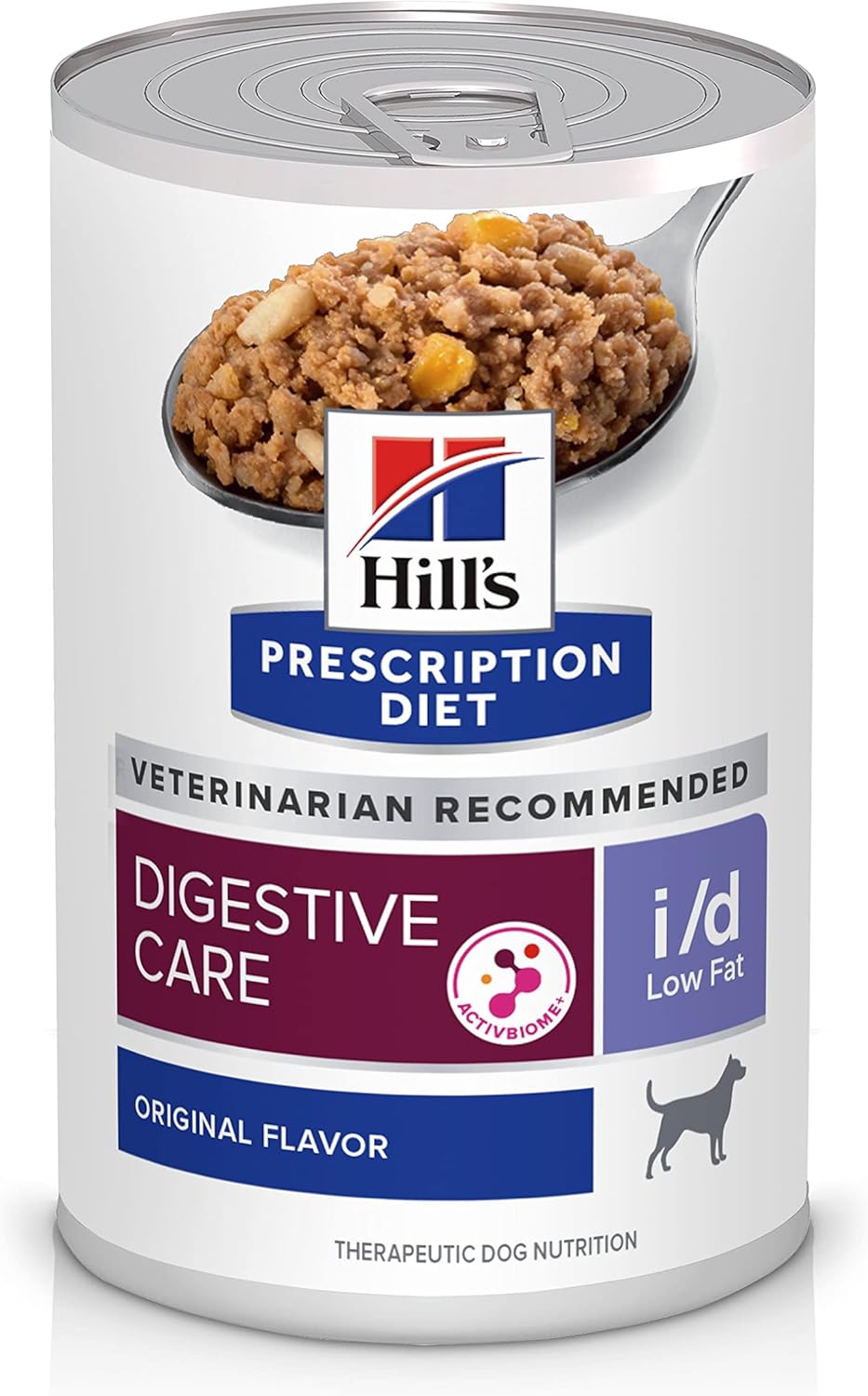
Veterinary-formulated with chicken and rice proteins plus prebiotic fiber, this recipe supports digestion, skin, and immune health. Suitable for all sizes and ages dealing with digestive issues.
2. Purina Pro Plan Focus – Most Affordable

Salmon-based protein with prebiotic fiber helps improve gut and skin health. Great for mild sensitivities and different life stages at a budget-friendly price.
3. Hill’s Science Diet Adult Sensitive Stomach & Skin – Best for Large Dogs
Formulated for large breeds with controlled minerals for joint health, supporting digestion and skin through prebiotics and omega fatty acids.
4. Blue Buffalo Life Protection Formula Puppy – Best for Puppies

Deboned chicken with wholesome carbs and LifeSource Bits support digestion and immunity during puppy growth.
5. Orijen Original Grain-Free Dry Dog Food – Best Dry Kibble

High-protein, biologically appropriate kibble with fresh meats and natural fibers for digestive health suitable for all life stages.
6. Hill’s Prescription Diet i/d Stew – Best Wet Dog Food

Easy-to-digest chicken and vegetables cooked gently in a savory stew, ideal for dogs needing wet food with anti-inflammatory benefits.
How to Transition Your Dog Safely
- Days 1-2: Mix 25% new food with 75% current food
- Days 3-4: 50/50 mix
- Days 5-6: 75% new, 25% current
- Day 7: 100% new food
For very sensitive dogs, extend to 10–14 days. Monitor stool consistency, appetite, and any signs of intolerance, slowing steps if needed. Hydration and smaller, frequent meals aid the transition.
Additional Tips for Managing Sensitive Stomachs
- Maintain a consistent feeding schedule with controlled portions.
- Ensure fresh water is always available to prevent dehydration.
- Consult a vet if symptoms persist or worsen.
Final Thoughts
Choosing the right grain-free dog food tailored to your dog’s size, life stage, and sensitivities can greatly improve their digestive health and happiness. A consistent feeding routine alongside high-quality nutrition is key to long-term success.
FAQs
Why choose grain-free dog food for sensitive stomachs?
It removes common grain allergens helping reduce digestive upset and skin issues.
How do I select the best grain-free food?
Look for balanced nutrition, hypoallergenic proteins, digestive aids, and avoidance of artificial additives.
Can probiotics improve my dog’s digestion?
Yes, they support healthy gut flora and better nutrient absorption in sensitive dogs.
For quality pet products and accessories that complement your dog’s sensitive diet, visit Tail Waves.
For deeper dietary advice, see our guide on what to feed a dog with a sensitive stomach. It explains symptoms and ideal ingredients.


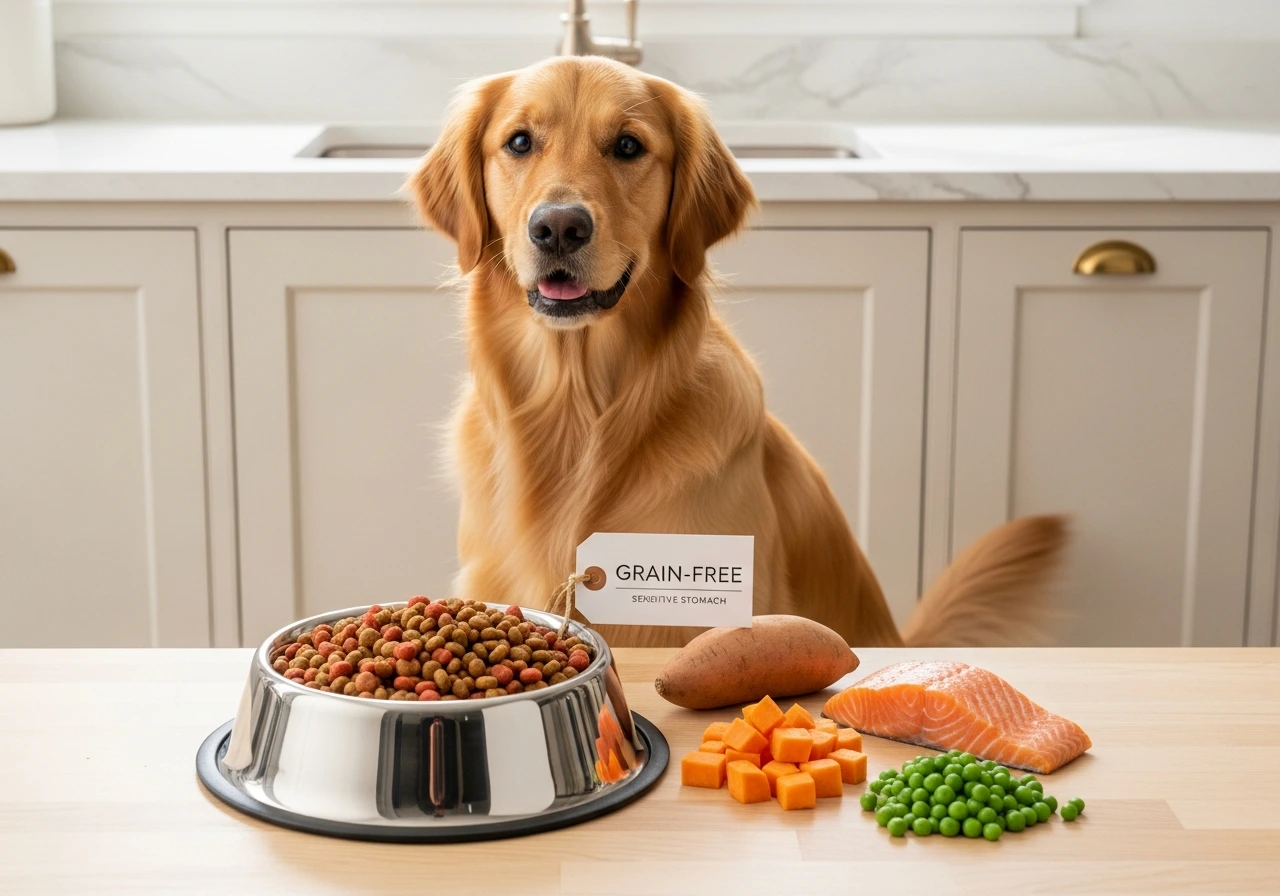


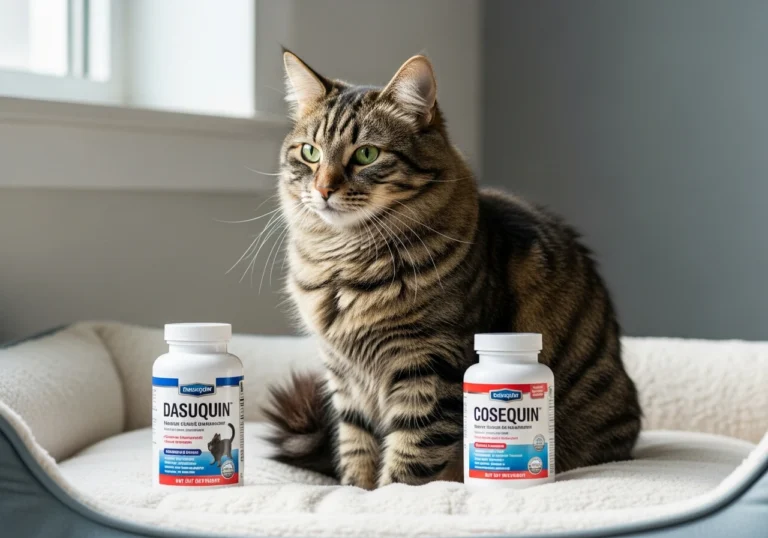





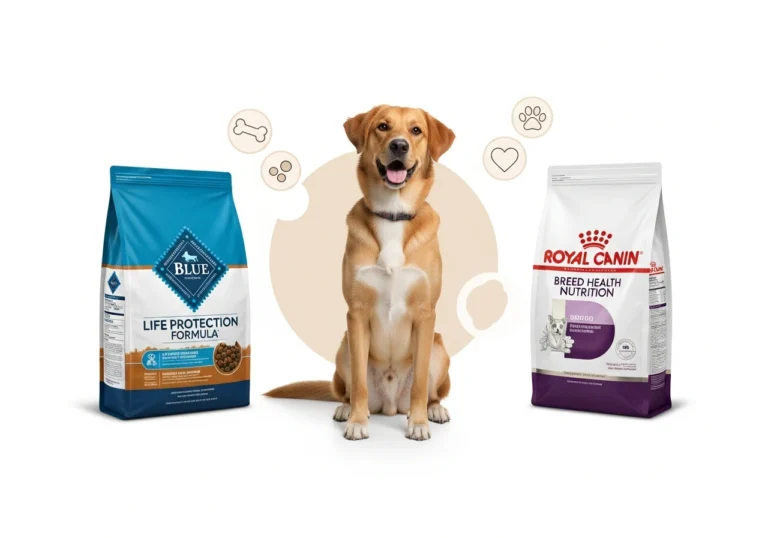
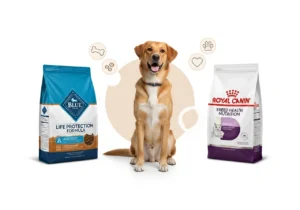
2 Comments